COLEACP information meetings for NPPOs
- 09/02/2021
- Posted by: Gaetan Dermien
- Category: Africa, Caribbean, Pacific
No Comments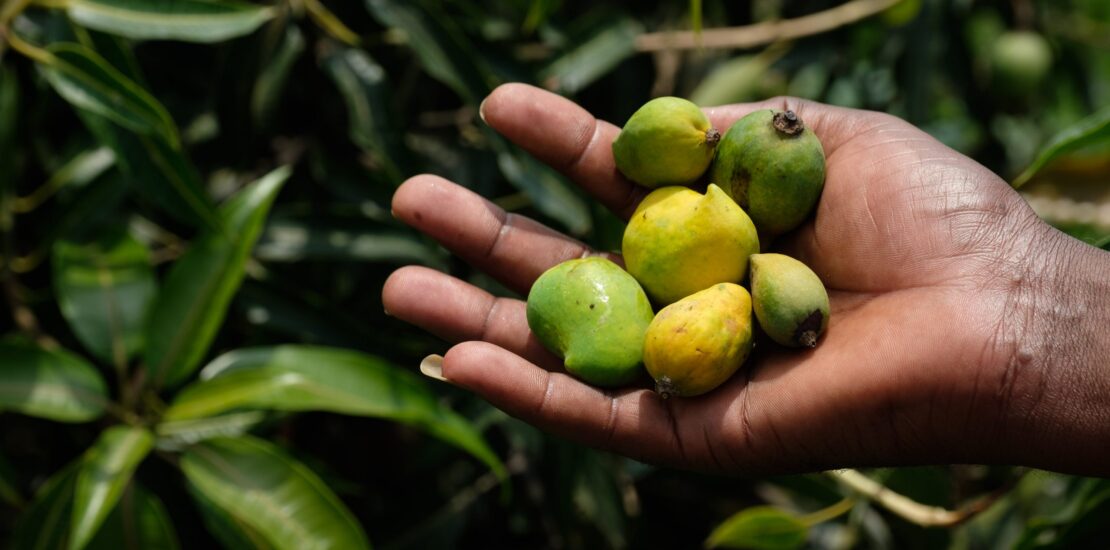 Further information on TRACES NT COLEACP’s videoconference for National Plant Protection Organisations (NPPOs) on 19 January, on “Use of the European TRACES NT system in ACP countries”, was well attended. Resources The following additional support is available on using TRACES NT: From late March 2021, virtual training courses will be provided by Better Training for Safer Food (BTSF). COLEACP will provide details when more information becomes available. Distance support and training from the TRACES helpdesk is available on request: contact… +
Further information on TRACES NT COLEACP’s videoconference for National Plant Protection Organisations (NPPOs) on 19 January, on “Use of the European TRACES NT system in ACP countries”, was well attended. Resources The following additional support is available on using TRACES NT: From late March 2021, virtual training courses will be provided by Better Training for Safer Food (BTSF). COLEACP will provide details when more information becomes available. Distance support and training from the TRACES helpdesk is available on request: contact… +Guinea-Bissau: COLEACP Mango Online Workshop
- 09/02/2021
- Posted by: Gaetan Dermien
- Category: Guinea-Bissau, Mangoes
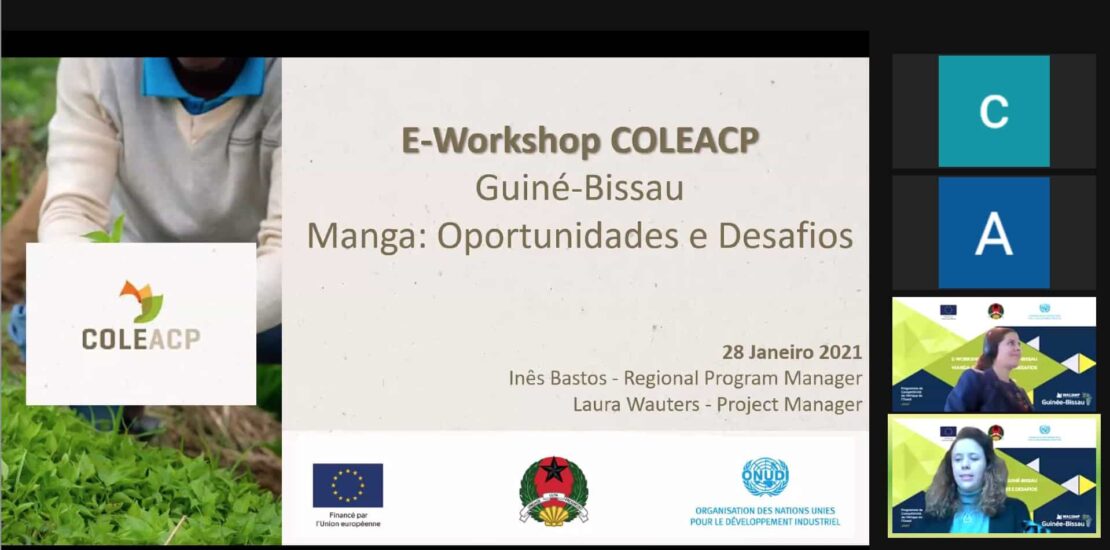 You can find the Portuguese version below On 28 January COLEACP organised a Mango Online Workshop as part of the West Africa Competitiveness Programme in Guinea-Bissau (WACOMP-GB). The meeting was convened for WACOMP-GB by Mr Adalberto Vieira (Chief Technical Advisor) and Ms Siham Chafak (international expert) and attended by representatives of the European Union, the Ministry of Industry, associations, producers, NGOs, and different private and public sector stakeholders with an interest in the mango value chain. Mrs Inês Bastos (Regional… +
You can find the Portuguese version below On 28 January COLEACP organised a Mango Online Workshop as part of the West Africa Competitiveness Programme in Guinea-Bissau (WACOMP-GB). The meeting was convened for WACOMP-GB by Mr Adalberto Vieira (Chief Technical Advisor) and Ms Siham Chafak (international expert) and attended by representatives of the European Union, the Ministry of Industry, associations, producers, NGOs, and different private and public sector stakeholders with an interest in the mango value chain. Mrs Inês Bastos (Regional… +STDF Guinea: increasing the phytosanitary control and certification system
- 03/02/2021
- Posted by: Sandra Borma
- Category: Guinea, News
 The Steering Committee of the STDF Guinea project was held last week to present the activities carried out in semester 2 and the programme for year 2; and to validate the semester report. In addition to the COPIL members, two Guinean experts, Dr. Traoré and Mr. Bangoura, joined the meeting and contributed greatly to the implementation of our activities during semester 2.… +
The Steering Committee of the STDF Guinea project was held last week to present the activities carried out in semester 2 and the programme for year 2; and to validate the semester report. In addition to the COPIL members, two Guinean experts, Dr. Traoré and Mr. Bangoura, joined the meeting and contributed greatly to the implementation of our activities during semester 2.… +Online training for Caribbean NPPOs
- 03/02/2021
- Posted by: Sandra Borma
- Category: Caribbean, News
 COLEACP is providing training in the Caribbean on Implementation of official controls for inspectors, controllers and technical staff involved in phytosanitary control, inspection and certification activities. This online training for NPPOs will be provided from 1 February until 26 February 2021. Spread over 4 weeks, it requires a daily time commitment of 3–4 hours. It is provided via COLEACP’s online training platform, and will be delivered through web conferencing, quizzes, educational videos and other digital tools. COLEACP’s expert trainers are… +
COLEACP is providing training in the Caribbean on Implementation of official controls for inspectors, controllers and technical staff involved in phytosanitary control, inspection and certification activities. This online training for NPPOs will be provided from 1 February until 26 February 2021. Spread over 4 weeks, it requires a daily time commitment of 3–4 hours. It is provided via COLEACP’s online training platform, and will be delivered through web conferencing, quizzes, educational videos and other digital tools. COLEACP’s expert trainers are… +Ghana: training in cost/benefit analysis for a women’s cooperative of Global Shea Alliance
- 03/02/2021
- Posted by: Sandra Borma
- Category: Ghana
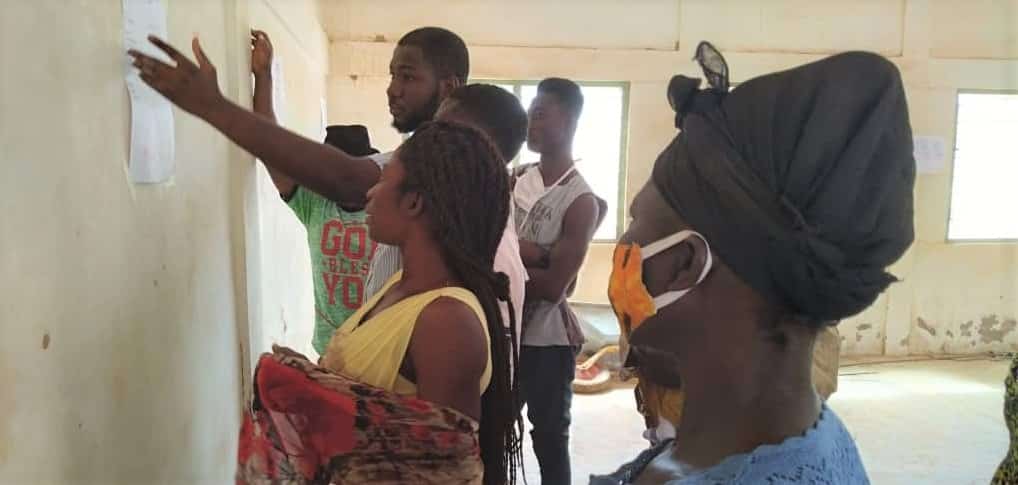 As part of COLEACP’s Fit For Market programme, training in cost/benefit analysis for micro/small scale producers was organised for the Global Shea Alliance (GSA). The training aimed to build capacity in cost/benefit and cashflow-related calculations for the production of vegetables at producer level, and in how farmers can be assisted to budget for the various activities in the vegetable production cycle. To increase farmers’ level of professionalism, a budgeting and planning exercise has been set up using simple tools that… +
As part of COLEACP’s Fit For Market programme, training in cost/benefit analysis for micro/small scale producers was organised for the Global Shea Alliance (GSA). The training aimed to build capacity in cost/benefit and cashflow-related calculations for the production of vegetables at producer level, and in how farmers can be assisted to budget for the various activities in the vegetable production cycle. To increase farmers’ level of professionalism, a budgeting and planning exercise has been set up using simple tools that… +Second session of STDF Cameroon project facilitator training
- 03/02/2021
- Posted by: Sandra Borma
- Category: Cameroon, News, Pepper
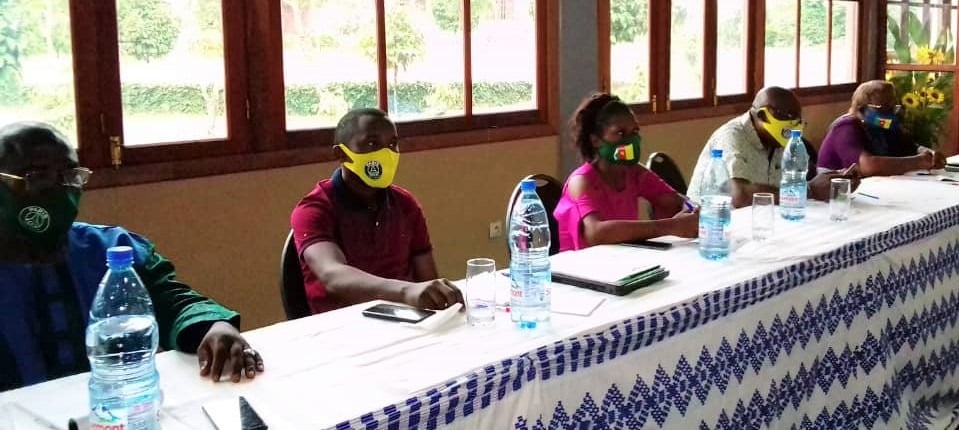 All this week, in Penja, a second training session is taking place for experts and strategic actors in the pepper value chain. This follow-up session aims to put into practice the technical and training skills acquired during the first session in December 2020. At the end of this training, participants will be able to play the role of trainers and coaches, especially for the training courses planned within the framework of this project. The STDF Cameroon project, led by COLEACP,… +
All this week, in Penja, a second training session is taking place for experts and strategic actors in the pepper value chain. This follow-up session aims to put into practice the technical and training skills acquired during the first session in December 2020. At the end of this training, participants will be able to play the role of trainers and coaches, especially for the training courses planned within the framework of this project. The STDF Cameroon project, led by COLEACP,… +AVOCADO ASSOCIATION UGANDA develops a three-year strategic plan
- 02/02/2021
- Posted by: Sandra Borma
- Category: News, Uganda
 AVOCADO ASSOCIATION UGANDA (formerly HASHAU) has been receiving support from COLEACP to work on their governance structure and guidelines. In addition, board members of AVOCADO ASSOCIATION UGANDA have received coaching to develop a strategic plan for the coming three years (2021-2023), outlining a list of priority services which the association envisions providing to its members. The overall objective is to enable AVOCADO ASSOCIATION UGANDA members to access international and domestic horticultural markets by complying with Good Agricultural Practices, SPS and… +
AVOCADO ASSOCIATION UGANDA (formerly HASHAU) has been receiving support from COLEACP to work on their governance structure and guidelines. In addition, board members of AVOCADO ASSOCIATION UGANDA have received coaching to develop a strategic plan for the coming three years (2021-2023), outlining a list of priority services which the association envisions providing to its members. The overall objective is to enable AVOCADO ASSOCIATION UGANDA members to access international and domestic horticultural markets by complying with Good Agricultural Practices, SPS and… +Dominican Republic: JAD-COLEACP webinars
- 02/02/2021
- Posted by: Sandra Borma
- Category: Avocados, Dominican Republic, Mangoes, News, Pineapples
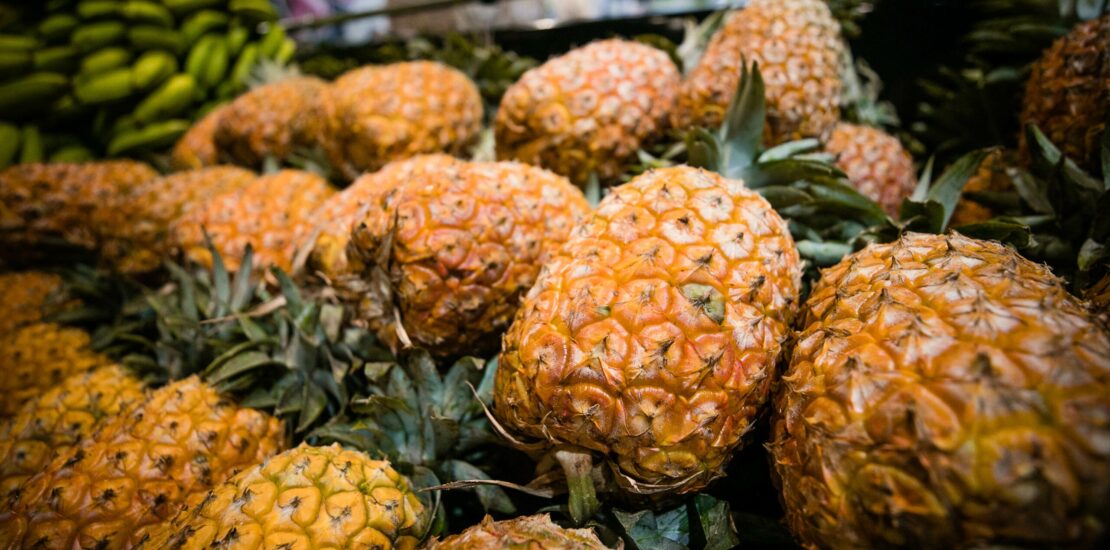 In collaboration with the Dominican Agroenterprise Board (Junta Agroempresarial Dominicana, JAD), COLEACP is organising a series of webinars on market access for processed products in the pineapple, mango and avocado sectors. These are part of the CALIFRUP project “Quality enhancement for the development of MSMEs in the processed fruit value chain”, which aims to support the strategy of value chain development and, specifically, to strengthen the processed fruit value chain. The first webinar, on “The international market for processed products”,… +
In collaboration with the Dominican Agroenterprise Board (Junta Agroempresarial Dominicana, JAD), COLEACP is organising a series of webinars on market access for processed products in the pineapple, mango and avocado sectors. These are part of the CALIFRUP project “Quality enhancement for the development of MSMEs in the processed fruit value chain”, which aims to support the strategy of value chain development and, specifically, to strengthen the processed fruit value chain. The first webinar, on “The international market for processed products”,… +Ethiopia : EHPEA launches horticultural training centre
- 02/02/2021
- Posted by: Sandra Borma
- Category: Ethiopia, News
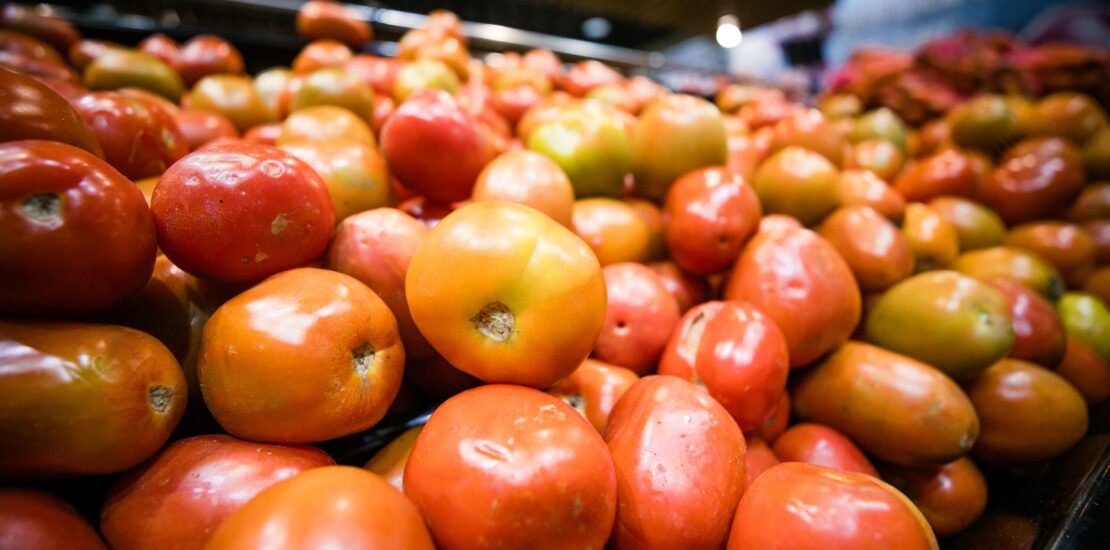 The Ethiopian Horticulture Producer Exporters Association (EHPEA) has announced the opening of a technical and vocational training institute for the horticultural sector, the first of its kind in the country. The focus will be on the competitiveness of the Ethiopian horticultural industry and access to international markets. The institute aims to address the shortage of skilled labour in the sector and to play a role in technology transfer, and plans to offer 3 to 6 month training courses in conjunction… +
The Ethiopian Horticulture Producer Exporters Association (EHPEA) has announced the opening of a technical and vocational training institute for the horticultural sector, the first of its kind in the country. The focus will be on the competitiveness of the Ethiopian horticultural industry and access to international markets. The institute aims to address the shortage of skilled labour in the sector and to play a role in technology transfer, and plans to offer 3 to 6 month training courses in conjunction… +Ghana: training on Organic Systems Implementation and Certification
- 02/02/2021
- Posted by: Sandra Borma
- Category: Ghana, News
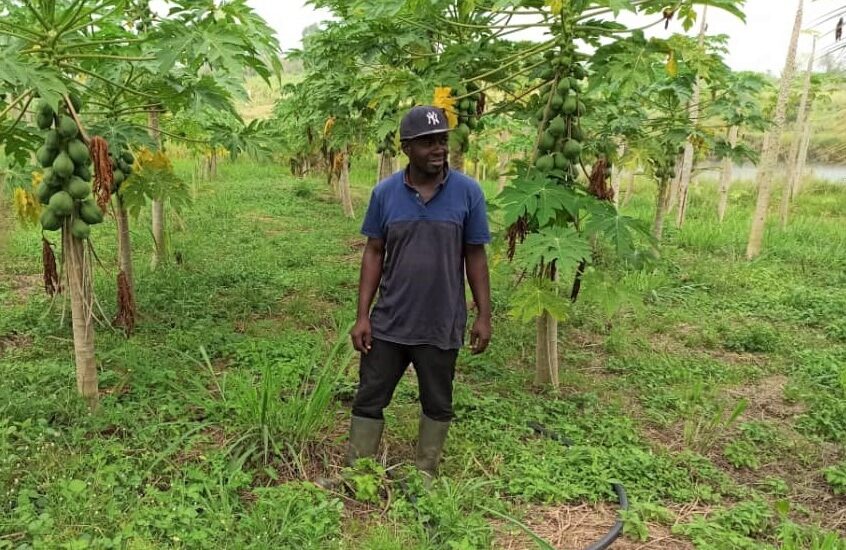 As part of COLEACP’s Fit For Market programme, a training in organic implementation systems was organized for a family-owned company SGA Farms, producing papayas in Ghana, in order to build their capacity in organic production methods. This training covered aspects related to certification, setting up an internal control system, drawing up procedures and documentation, maintaining the system, etc. (including technical and financial implications of implementing this production system). The training also aimed at building the capacity of the staff on… +
As part of COLEACP’s Fit For Market programme, a training in organic implementation systems was organized for a family-owned company SGA Farms, producing papayas in Ghana, in order to build their capacity in organic production methods. This training covered aspects related to certification, setting up an internal control system, drawing up procedures and documentation, maintaining the system, etc. (including technical and financial implications of implementing this production system). The training also aimed at building the capacity of the staff on… +
